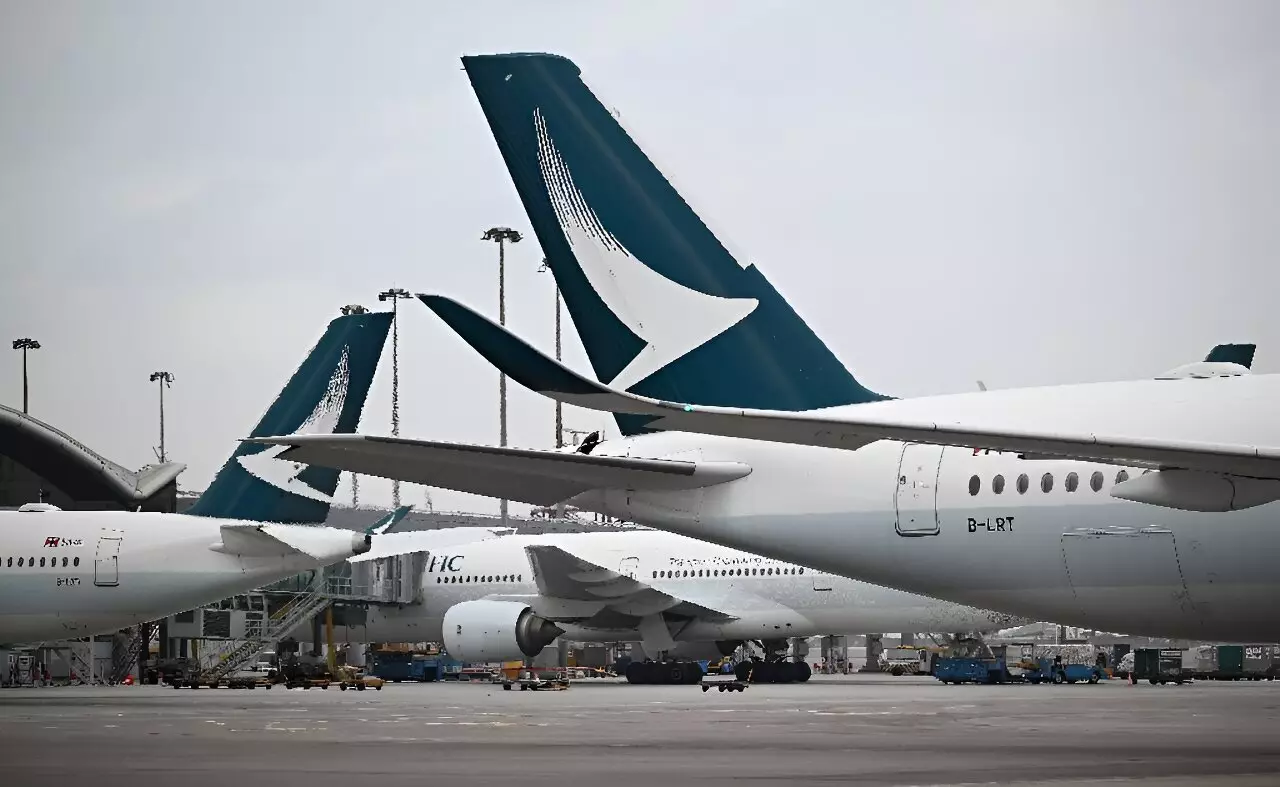Cathay Pacific recently faced a major setback when it had to ground 48 of its Airbus A350 planes for checks due to defective engine fuel lines. This issue forced the airline to cancel dozens of flights, causing inconvenience to passengers. The inspection revealed that components on 15 of the A350s needed to be replaced, leading to disruptions in the airline’s operations.
After identifying the problem, Cathay Pacific took swift action to address the issue. The airline announced that it would replace the faulty engine fuel lines on all affected aircraft. By doing so, Cathay Pacific aimed to resume full operations by Saturday. While some planes had already undergone repairs and were cleared to operate, the remaining aircraft were expected to be back in service by the end of the week.
The cancellation of flights by Cathay Pacific had a direct impact on passengers, especially those traveling on regional routes. The incident also prompted other airlines operating Airbus A350 models to conduct similar checks on their aircraft to ensure the safety and reliability of their fleets. Passengers expressed concerns about the maintenance and safety of the planes they were traveling on, highlighting the importance of transparency and communication from airlines.
Amidst the concerns raised by passengers and the aviation community, some airlines provided reassurance regarding the status of their A350 fleets. Japan Airlines confirmed that their inspections revealed no issues with three of their A350 jets, while Thai Airways and Singapore Airlines reported that their planes were operating normally with no impact on flights. However, the situation varied across different regions, with each airline handling the issue based on their internal protocols and guidance from aircraft manufacturers.
The incident involving Cathay Pacific’s A350 fleet prompted cooperation between Airbus, Rolls-Royce, and regulatory authorities. The ongoing investigation into the defective engine fuel lines highlighted the importance of proactive maintenance and regular checks to ensure the safety of aircraft. Aviation experts emphasized the significance of identifying and addressing mechanical issues promptly to prevent potential risks during flight operations.
As airlines worldwide continue to operate Airbus A350 aircraft, the incident at Cathay Pacific serves as a reminder of the critical nature of aircraft maintenance and safety standards. Airlines are expected to enhance their monitoring and inspection procedures to prevent similar issues from occurring in the future. Manufacturers like Rolls-Royce are also under pressure to improve the durability and reliability of engine components to maintain the trust and confidence of airlines and passengers.
Cathay Pacific’s experience with the defective engine fuel lines on its A350 planes shed light on the challenges and responsibilities faced by airlines in ensuring the safety and efficiency of their fleets. The incident underscored the need for collaboration and transparency within the aviation industry to address mechanical issues promptly and minimize disruptions to flight operations. As the airline industry continues to evolve and expand, a proactive approach to maintenance and safety will be crucial in upholding the highest standards of air travel.


Leave a Reply